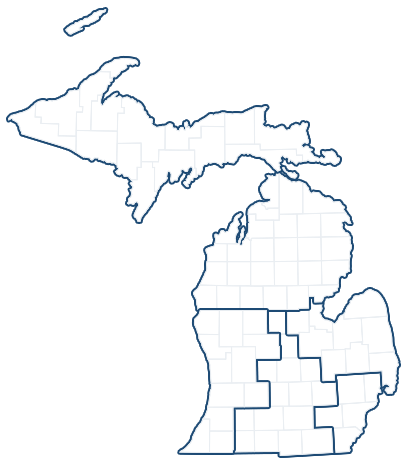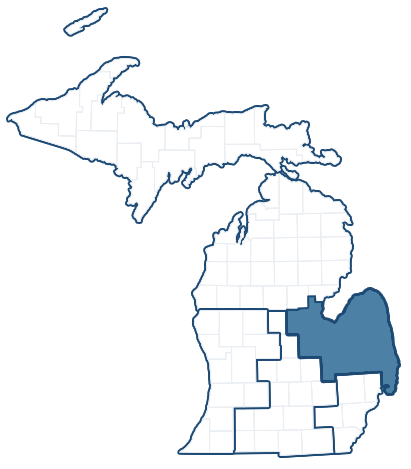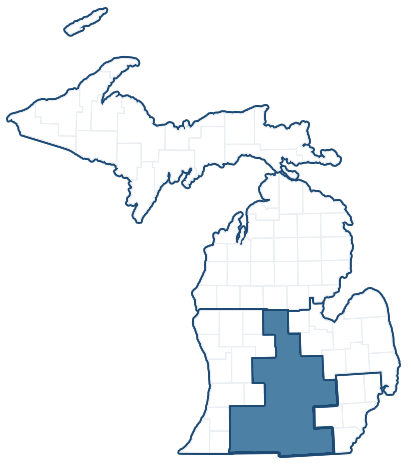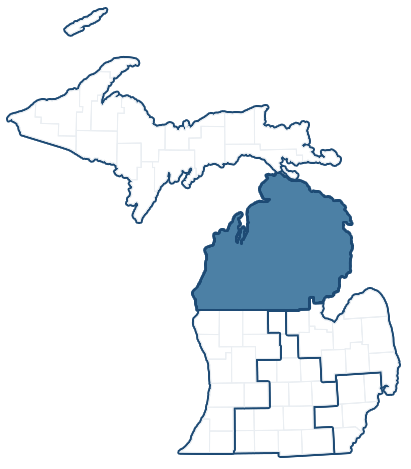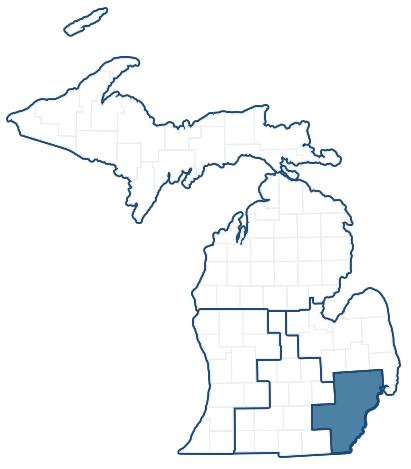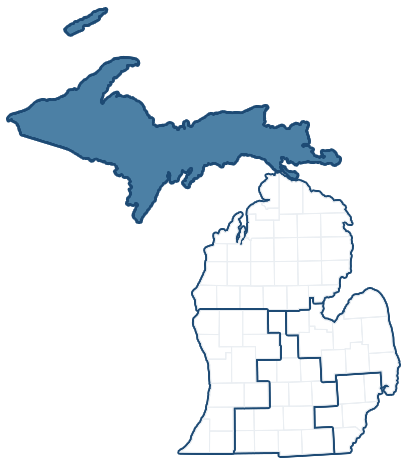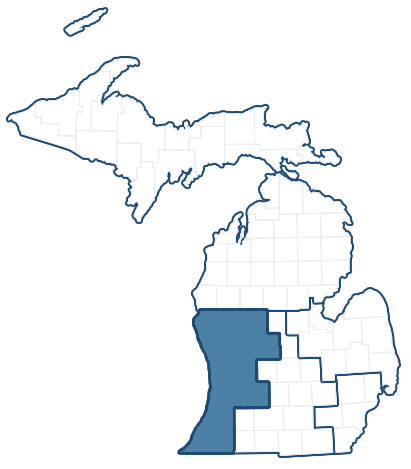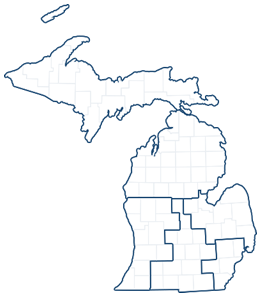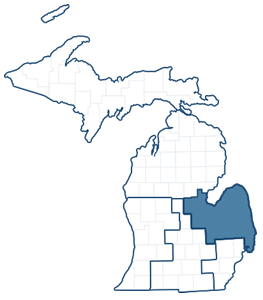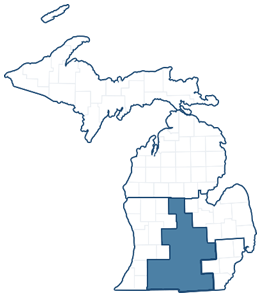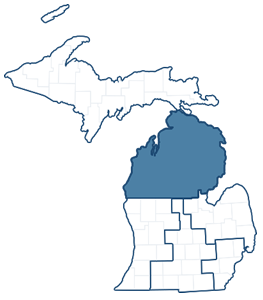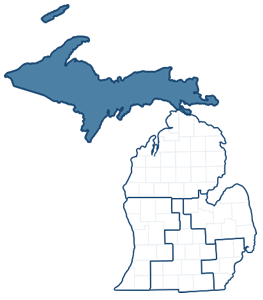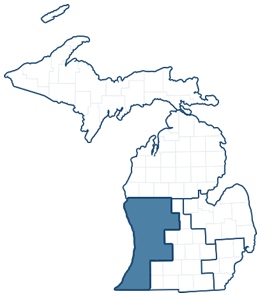Stabenow, Peters Lead Bipartisan Push to Secure $320 Million for Great Lakes Conservation Program in Trump Administration’s FY 2021 Budget Request
Tuesday, January 28, 2020WASHINGTON, DC – U.S. Senators Debbie Stabenow (MI), co-chair of the Senate Great Lakes Task Force, and Gary Peters (MI) led a bipartisan effort to urge the Trump Administration to allocate at least $320 million for the Great Lakes Restoration Initiative (GLRI) in the fiscal year (FY) 2021 President’s budget request. In a letter to the heads of the Office of Management and Budget (OMB) and the Environmental Protection Agency, Stabenow, Peters and a bipartisan group of Senators highlighted the GLRI’s core mission of preserving the health and vibrancy of this critical economic driver, source of fresh drinking water and natural resource through their efforts to combat invasive species, decrease pollution and remediate contaminated areas.
“Now is not the time to scale back our nation’s commitment to restore the Great Lakes environment and economy,” the senators wrote. “Because of the partnership we have with federal agencies, our region is making progress and seeing results. The GLRI is a locally driven restoration effort and its success depends on the collaboration between all levels of government and with industrial, commercial, and non-governmental partners. We ask that you provide no less than the FY 2020 appropriated amount of $320 million for the GLRI in next year’s budget request.”
Stabenow and Peters were joined in this effort by U.S. Senators Rob Portman (R-OH), Amy Klobuchar (D-MN), Todd Young (R-IN), Sherrod Brown (D-OH), Mike Braun (R-IN), Tammy Baldwin (D-WI), Dick Durbin (D-IL), Tammy Duckworth (D-IL), Tina Smith (D-MN), Bob Casey (D-PA) and Kirsten Gillibrand (D-NY).
Stabenow has been a champion for the Great Lakes her entire life and is currently the Co-Chair of the bipartisan Senate Great Lakes Task Force. The very first piece of legislation Senator Stabenow passed in the Senate banned oil and gas drilling in the Great Lakes. Senator Stabenow authored the Great Lakes Restoration Initiative in 2010 as a member of the Senate Budget Committee. This initiative has been successful in cleaning up our lakes, waterways, and beaches so Michigan families can enjoy swimming, boating and fishing. When the Trump Administration gutted funding for the Great Lakes, Senator Stabenow led a bipartisan coalition to get every penny restored. Additionally, as Ranking Member of the Senate Agriculture Committee, Senator Stabenow works to protect the Great Lakes by targeted conservation efforts and combatting the climate crisis.
Peters has led numerous successful efforts in Congress to preserve the Great Lakes. Last month, a bipartisan provision Peters led to provide the first increase in Great Lakes Restoration Initiative (GLRI) funding since the program was established nearly a decade ago was signed into law as part of the government funding bill for FY 2020. Peters also secured numerous other bipartisan provisions to support the Great Lakes in the bill, including measures to provide funding for the U.S. Coast Guard National Center of Expertise for the Great Lakes, authorize and fund the Great Lakes Science Center, which helps protect and sustain Great Lakes state managed fisheries by providing scientific research, and provide funding to the Coast Guard to improve icebreaking capability to support Great Lakes maritime commerce.
Full text of the letter can be found here and below:
Dear Acting Director Vought and Administrator Wheeler:
As you work on the Administration’s fiscal year (FY) 2021 budget, we ask that you include not less than the FY 2020 appropriated amount of $320 million for the Great Lakes Restoration Initiative (GLRI). The Great Lakes are a national treasure and internationally important, providing drinking water for 40 million people and contributing $10 billion in tourism each year. The momentum and partnerships of the GLRI program, which are helping to protect and restore the lakes, must be maintained.
As you know, our region is successfully undertaking one of the nation’s largest restoration efforts. A recent Great Lakes Restoration Initiative report to Congress found that GLRI “is protecting public health in the Great Lakes more than any other coordinated interagency effort in U.S. history, and helping to ensure that our children and their children live in safer, healthier communities.” Since its inception in 2010, $2.4 billion has been used to fund over 4,800 projects to combat the greatest threats to the Great Lakes, including invasive species, harmful algal blooms and loss of fish and wildlife habitats.
However, there is still much work that needs to be done. Aging sewers, invasive species, harmful algal blooms, and toxic pollutants are just a few of the pervasive threats that impact the region. Historic high water levels and unprecedented erosion is threatening public safety, shorelines, infrastructure, housing, tourism, and even one of our newest national parks. Cutting funding will slow restoration efforts, allowing problems to get worse and making them more expensive to solve. Ultimately, cutting spending on the Great Lakes won’t save money—it will cost the nation more. As the source of drinking water for 40 million people, the nation cannot afford to stop protecting and restoring the Great Lakes.
Now is not the time to scale back our nation’s commitment to restore the Great Lakes environment and economy. Because of the partnership we have with federal agencies, our region is making progress and seeing results. The GLRI is a locally driven restoration effort and its success depends on the collaboration between all levels of government and with industrial, commercial, and non-governmental partners. We therefore ask that you provide no less than the FY 2020 appropriated amount of $320 million for the GLRI in next year’s budget request.
###
Press Contact

Next Article Previous Article



